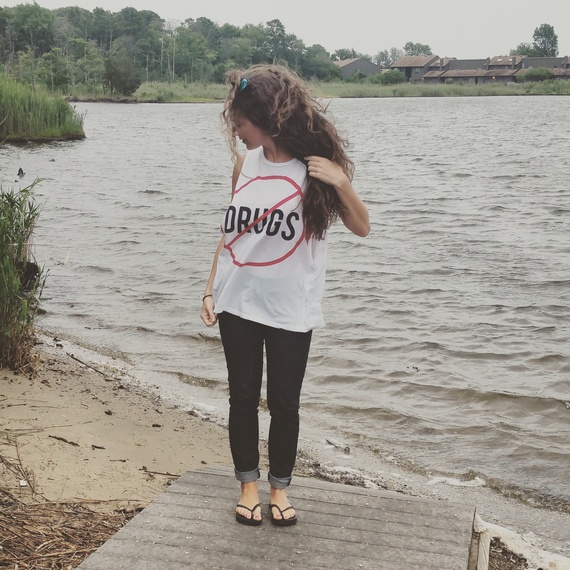September is National Recovery Month.*
I am not an addict.
But try and love one, and then see if you can look me square in the eyes and tell me that you didn't get addicted to trying to fix them.
If you're lucky, they recover. If you're really lucky, you recover, too.
Loving a drug addict can and will consume your every thought. Watching their physical deterioration and emotional detachment to everything will make you the most tired insomniac alive.
You will stand in the doorway of their bedroom and plead with them that you "just want them back." If you watch the person you love disappear right in front of your eyes long enough, you will start to dissolve too.
Those not directly affected won't be able to understand why you are so focused on your loved one's well-being, especially since, during the times of your family member's active addiction, they won't seem so concerned with their own.
Don't become angry with these people. They do not understand. They are lucky to not understand. You'll catch yourself wishing that you didn't understand, either.
"What if you had to wake up every day and wonder if today was the day your family member was going to die?" will become a popular, not-so-rhetorical question.
Drug addiction has the largest ripple effect that I have ever witnessed firsthand.
It causes parents to outlive their children. It causes jail time and homelessness. It causes sisters to mourn their siblings. It causes nieces to never meet their aunts. It causes an absence before the exit.
You will see your loved one walking and talking, but the truth is, you will lose them far before they actually succumb to their demons; which, if they don't find recovery, is inevitable.
Drug addiction causes families to come to fear a ringing phone or a knock on the door. It causes vague obituaries. I read the papers and I follow the news; and it is scary. "Died suddenly" has officially become obituary-speak for "another young person found dead from a drug overdose."
Drug addiction causes bedrooms and social media sites to become memorials. It causes the "yesterdays" to outnumber the "tomorrows." It causes things to break; like the law, trust and homes.
Drug addiction causes statistics to rise and knees to fall, as praying seems like the only thing left to do sometimes.
People have a way of pigeonholing those who suffer from addiction. They call them "trash," "junkies" or "criminals," which is hardly ever the truth. Addiction is an illness. Addicts have families and aspirations.
You will learn that drug addiction doesn't discriminate. It doesn't care if the addict came from a loving home or a broken family.
Drug addiction doesn't care if you are religious. Drug addiction doesn't care if you are a straight-A student or a drop-out. Drug addiction doesn't care what ethnicity you are. Drug addiction will show you that one decision and one lapse in judgment can alter the course of an entire life.
Drug addiction doesn't care. Period. But you care.
You will learn to hate the drug but love the addict. You will begin to accept that you need to separate who the person once was with who they are now.
It is not the person who uses, but the addict. It is not the person who steals to support their habit, but the addict. It is not the person who spews obscenities at their family, but the addict. It is not the person who lies, but the addict.
And yet, sadly... it is not the addict who dies, but the person.
Follow Cook on Instagram: @thealiciacook
*National Recovery Month, formerly National Alcohol and Drug Addiction Recovery Month, is a national observance sponsored by the Substance Abuse and Mental Health Services Administration's (SAMHSA) Center for Substance Abuse Treatment (CSAT) each September. Recovery Month, now in its 23rd year, highlights individuals who are living happy and healthy lives in long-term recovery.
_________________
Need help with substance abuse or mental health issues? In the U.S., call 800-662-HELP (4357) for the SAMHSA National Helpline.
